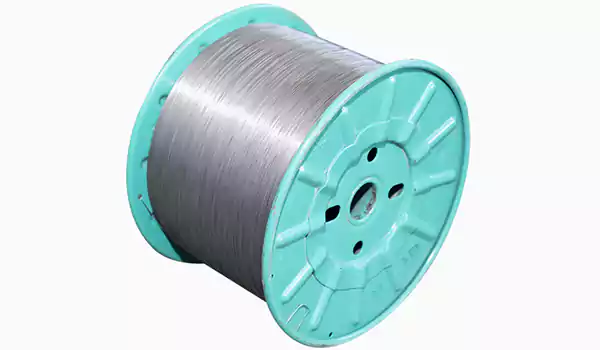
Opting for the best metal conduit for construction needs depends on grasping its technical details and possible uses. Usual measurements mention alloy, thickness, dimension, and fit allowances. Factors such as pressure rating, temperature performance, and corrosion resistance are critical when selecting a pipe for industrial, commercial, or residential use. Metal pipes are deployed across building, manufacturing, civic infrastructure, supply networks, gas systems, drainage installations, structural reinforcement and particular usages
- Clarifying the task's requirements enables selection of the most fitting piping
- Look up industry codes and standards to get detailed metal pipe specifications
- Pick materials according to load pressure, thermal stresses and corrosive exposure
Steel Tube Products: Robustness, Longevity, and Adaptability
Round and shaped tube steel deliver substantial strength and are frequently specified in industrial, structural and commercial applications. Proven endurance arises from specialized forming and treatment processes. Fabricated by forming steel billets or rods into welded or seamless profiles, these tubes show excellent corrosion and wear resistance with extended serviceability in demanding conditions. Flexible tube steel fabrication produces simple or complex shapes that accommodate individual design and engineering needs. In applications ranging from large infrastructure projects and building frameworks to detailed machinery and tooling, tube steel's durability, strength and formability establish it as an indispensable construction and manufacturing materialExpanded Metal Lattice for Heightened Security and Safety
Expanded metal mesh is frequently used where physical security and heightened safety are both necessary. With an open-cell design it maintains visibility and forms a deterrent against access and potential threats. You can tailor aperture patterns and sheet thickness to fulfill specialized criteria
- Tough expanded metal resists collisions, intentional harm and severe environmental exposure
- Moreover, straightforward fitting and reduced maintenance needs promote broad implementation
- For shielding essential facilities and personnel safety in manufacturing sites, expanded metal provides a complete protective approach
Steel Mesh Industrial Roles
Steel mesh is used widely in industrial processes due to its structural strength, endurance and adaptable utility. It offers a solid framework suitable for filtration, screening, structural reinforcement and protection. In civil construction, steel mesh is often embedded in concrete to strengthen tensile resistance and prevent cracking. Furthermore, steel mesh contributes to structural reinforcement in bridges, tunnels and civil engineering for enhanced load capacity. In manufacturing, steel mesh becomes a key part of industrial screens and filters where its fine or dense weave separates materials of different sizes for sieving, sorting and purification. Steel mesh is also essential for protective and security uses—guardrails, fencing and enclosures that deter unauthorized access and protect personnel. Its strong tensile attributes allow it to absorb impacts and forces, granting consistent protective performance in challenging environments
Metal Pipe Structural Implementations
The strong character of metal pipes ensures their value in a broad range of structural uses. Their formability aids in producing resilient frameworks capable of supporting load-bearing applications across sectors. From skyscrapers to bridges and underground pipelines, metal pipes provide a backbone and withstand rigorous environmental pressures and exposures. Corrosion tolerance and ease of fabrication strengthen their applicability in today's construction standards
Choosing Suitable Tube Steel for Your Needs
For any build or fabrication task, choosing appropriate tube steel is essential. Because of its strength, durability and relative lightness, tube steel serves well in many roles. Even so, large arrays of grades and specifications complicate the tube steel selection process
- Consider application, loading needs and environmental exposures for successful selection
- Key factors including wall thickness, diameter and grade directly shape tube steel performance
For major structural projects opt for heavy-gauge, high-yield tube steel; for low-mass applications opt for thinner-walled steel
Collaborate with knowledgeable engineers or metal suppliers to discover the optimal tube steel solution for your task
Upsides of Expanded Metal in Building Projects
Expanded metal presents diverse practical advantages and efficiency gains for construction tasks. Lightweight construction supports easier installation and helps diminish labor costs. Additionally, the open design improves ventilation and drainage which mitigates moisture buildup. Robustness ensures it is appropriate for demanding, high-resilience usesOverview of Metal Pipe Connections
Connection steel near me assemblies in piping are core components allowing secure movement of fluids and gases. Selecting the suitable joint depends on pipe dimensions, material composition, pressure capacity and the application. Standard metal pipe connections include threaded, flanged and welded options that vary in strength and sealing performance. Threaded joints screw male to female threads, flanged joints clamp with bolts on flat surfaces, while welded joints permanently fuse sections by heat and pressure. Awareness of each connector's properties is necessary to ensure a functional, sealed piping systemDIY Uses of Metal Steel Mesh
Steel mesh brings durable, versatile and strong characteristics suitable for various DIY creations. The mesh's open grid supports making fences, screens and ornamental pieces. Moreover, being light and simple to work with, it appeals to novice and proficient handypersons
- Think of steel mesh for your next practical or decorative DIY task
Metal Pipes: Sanitary to Structural Purposes
Metal tubing is fundamental to modern infrastructure and construction for its strength, durable performance and adaptability. Though first used for sanitation and water systems, metal pipes have advanced into structural duties and support roles. From foundations and supports to water supply and gas distribution networks, metal pipes deliver essential functions in modern infrastructure. Robust construction allows them to manage high pressures and loads and corrosion resistance delivers dependable long-term performance. Additionally, pipes are highly formable and adaptable to various configurations to meet diverse application needs
Exploring Expanded Metal: Design and Function
Expanded metal enables varied design expressions alongside strong functionality. The open weave supports diverse uses including aesthetic architectural elements and industrial protective systems. Strength combined with aesthetic potential means expanded metal can support loads and still look appealing
- Moreover, expanded metal's open structure boosts ventilation and supports applications requiring heat dissipation
- Applications of expanded metal are wide-ranging across construction, manufacturing, transportation and creative design fields